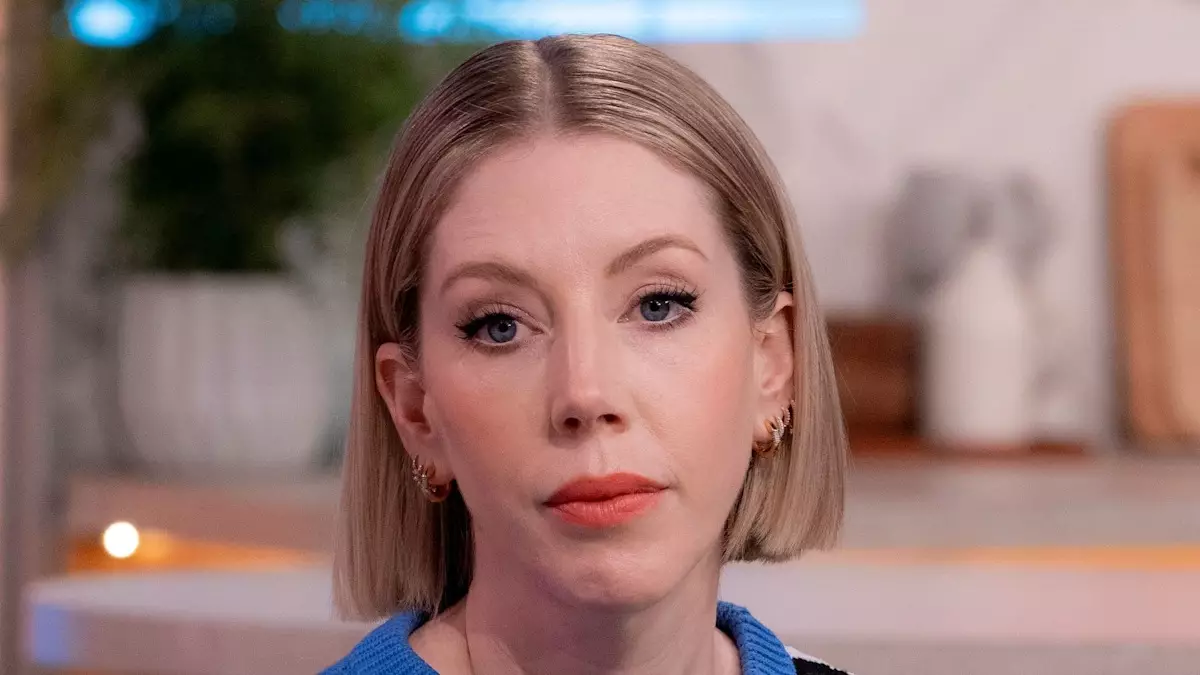In a raw and open discussion, comedian Katherine Ryan recently revealed her second battle with melanoma, a serious skin cancer that can escalate quickly if not detected early. This unsettling news comes after a troubling experience with healthcare systems that in her case, almost led to a potentially life-threatening oversight. When she first noticed changes in a mole on her arm, her concerns were dismissed both by the NHS and a private clinic. This makes one question the reliability of medical consultations, especially when intuition suggests something is amiss. Ryan’s story serves as a powerful reminder that vigilance in one’s health is paramount, even when expert opinions may instill a false sense of security.
The healthcare system, particularly in the UK, is often praised for its accessibility; however, Katherine’s experience highlights a crucial flaw. The reality that her urgent concerns were sidelined due to professional reassurance showcases a broader issue affecting countless patients. How many others have faced similar dismissals, potentially delaying life-saving treatments? One can’t help but feel that in a system inundated with patients, the urgency of individual concerns can become lost, raising a formidable challenge to the ethos of “care” inherent in healthcare.
The Power of Personal Advocacy
Katherine Ryan’s journey underscores an essential takeaway: self-advocacy in health matters is critical. After receiving a clean bill of health from an NHS dermatologist, her instincts told her otherwise. This crucial moment of doubt led her to seek further evaluations, resulting in a diagnosis that could have been much worse if left unchecked. It’s a striking testament to the importance of being proactive about one’s health. People often tend to trust medical advice implicitly, but Ryan’s situation exemplifies that it is entirely acceptable—even necessary—to seek a second opinion.
When Katherine finally opted for private care, it was after a willing investment—one that not everyone can afford. “The only reason they agreed to remove it was because I went to a fancy, private place…and I paid them a grand,” she explained. This raises questions about healthcare accessibility: why should financial barriers define the urgency and quality of care one receives? It sparks a critical dialogue around the healthcare systems that, while competent, may inadvertently make life-and-death decisions dependent on one’s socioeconomic status.
A Call to Action for Health Awareness
In light of her experience, Katherine took to social media, urging her followers to examine their own moles and listen to their bodies. Her candidness in sharing the tale of her health ordeal empowers others to take their suspicions seriously, bridging the gap between personal experience and collective awareness. We live in an age of information yet somehow, health concerns often take a backseat, either from denial or misinformation.
Melanoma is no small concern; figures show that around 16,700 people are diagnosed with it annually in the UK alone. The escalating rates are alarming—how is it that a potentially fatal disease can be so prevalent, yet the signs or risks surrounding it remain under-discussed? Ryan’s experience is a wake-up call, a beacon motivating individuals to get regular skin checks and remain vigilant.
She even remarked on the anxiety tied to receiving a diagnosis that seemed straightforward to a professional, emphasizing how easily a misleading reassurance can foster complacency. “I think it’s really easy to take a diagnosis of ‘you’re healthy’ and just walk away,” she said, resonating with many who might have experienced similar moments of dismissal in clinics.
Changing the Narrative on Melanoma
Katherine’s situation shines a spotlight not just on her personal health journey, but also on the need for cultural shifts in our approach to skin cancer. For a condition that heavily correlates with excessive sun exposure, public service campaigns about protection—like wearing sunscreen and avoiding tanning beds—remain crucial. Awareness must be ongoing and inclusive of the complexities surrounding various medical diagnoses.
Her return to the public eye with fresh awareness challenges us to confront the stigma often enveloping cancer discourse; it’s not merely an “other people’s problem.” The urgency to demystify such health issues should coalesce into societal advocacy, encouraging open conversations. No one should feel an unease in sharing their concerns, regardless of how trivial they might seem.
As Ryan continues her journey with melanoma, it’s a testament to human resilience and the importance of listening to one’s body. We may hope that her experience prompts lasting change in both personal health advocacy and systemic improvements in health care.


Leave a Reply